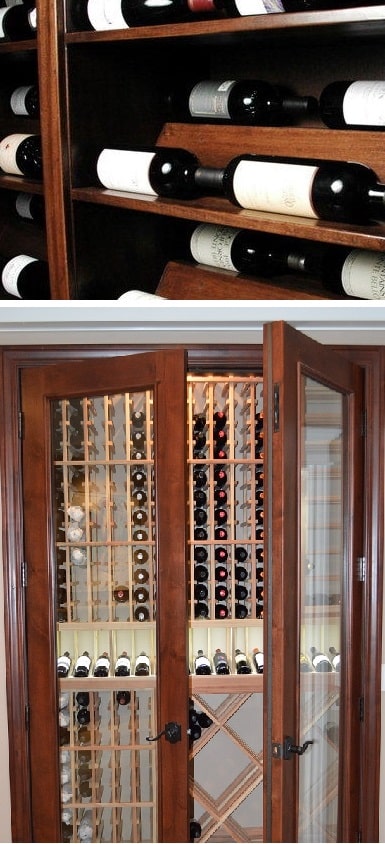California Wine Cellars – Wine Cork & Proper Wine Storage
Contents
In order to enjoy wine fully, it has to be stored properly. Besides a good residential custom wine cellar, there are other factors that contribute to the proper storage of wines. Wines corks are a vital element to keeping wines at their best.
The Role of Wine Corks in Wine Storage

How wine is stored affects how wine tastes. Wine cellars are an ideal wine storage solution. Beside cellars, wine corks also play a vital role.
Wine corks are essential in proper wine storage. Since ancient times, cork has been used as wine bottle closures particularly in an Etruscan amphora in Tuscany way back in 16th century BC.
Due to technology and modernization, many have tried using alternative wine stoppers like plastic stoppers and screw caps as replacements to wine corks, but nothing beats the tried and tested wine corks to seal wine bottles.
Corks are derived from the bark of cork oak tree. Cork is usually harvested from early May to late August when the corks can be removed from the tree without causing any permanent damage to it. It is an in demand material for flooring, thermal insulation in house walls, bulletin boards, wine stoppers, and many other projects.
Some of the countries which massively produce corks are Algeria and Tunisia in Africa, France, Spain, and Portugal in Europe. Among all these countries, Portugal is said to be the largest producer of corks.
Cork cambium is where the cork tissue is derived from. It is part of the outer bark of the cork oak tree. The cork tissue is composed of several layers of tiny cells. Each cell consists of a small amount of air. Lignin, suberin, and wax are the materials which make up the cell wall of the cork.
Let’s find out the properties of cork and why it is the best material for sealing wine bottles.
Properties of Wine Corks and How they Affect Wine Storage in California Wine Cellars
Wine corks are durable. They do not degrade easily when in contact with wine. Woody or vanillin odors may be imparted to wine, but this does not affect the flavor.
Cork is also highly coefficient to friction. Wine corks do not slide easily on glass, making it a really good wine bottle closure. This is also the reason why it is hard to remove wine corks in wine bottles when you try to open them.
Moreover, wine corks are compressible and resilient. When you compress the cork, it does not cause notable lateral expansion. In addition to that, it is resilient for the reason that it can return to 85 percent of its original volume in a few minutes.
Wine corks are also said to be elastic. The elastic property of the cork is because of the structure of its cells. This is why cork has the ability to adjust well to the shape of the wine bottle’s neck, creating an effective seal for wines in your wine cellar.
Moreover, the moisture content of the wine cork affects its microbial status and elasticity. 5% to 7% moisture is desired and should be maintained. If the moisture of the cork is high, the cork is prone to microbial growth and when moisture is too low it can cause the cork to dry out, become brittle, and may crumble when you remove it from the wine bottle.
Storing wine in a Los Angeles custom wine cellar with the ideal humidity level will prevent cork from drying out. This can be achieved with an efficient wine cellar cooling system. Making sure that wine bottles in your wine cellar racks are stored sideways so that cork is in contact with wine will also preserve the cork’s moisture.
Moving on, another essential characteristic of cork is its impermeability. Since cork has tightly pack cells, liquid and gas cannot easily get in the wine bottle, thus preventing wine oxidation which can ruin wine.
However, cork can have low permeability depending on some factors like genetic origin, soil, climate, tree dimensions, growth conditions, and age. Gases can pass through very small channels of wine corks, thus it is not advisable to expose wine bottles near vinegars, soaps, or any other substance which has acetic acid because it may affect the taste and quality of the wine.
Remember, wine corks may be just a piece of wood. They may be small, but they play a vital role in keeping your wines delicious and aromatic.





